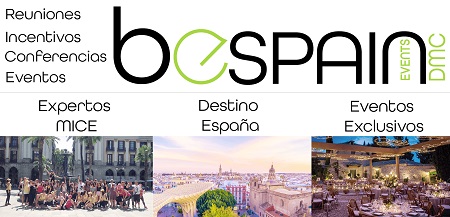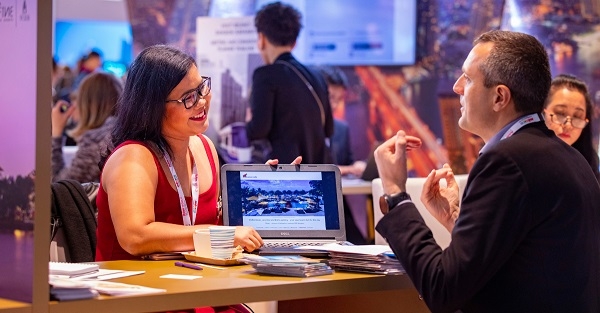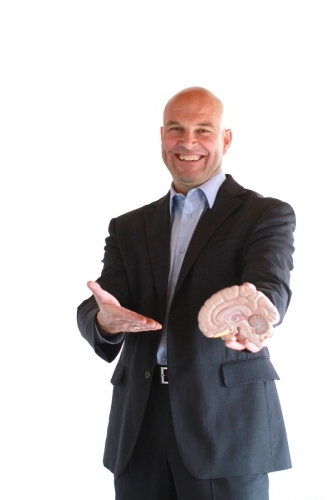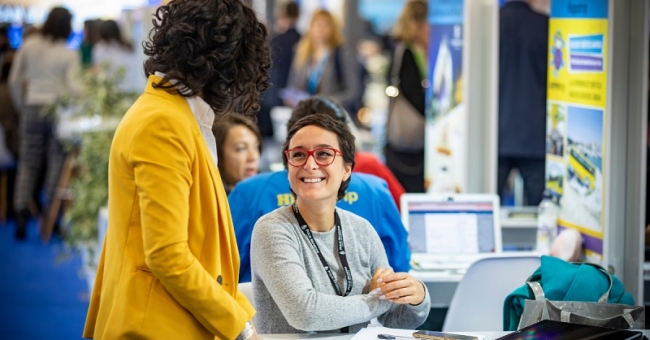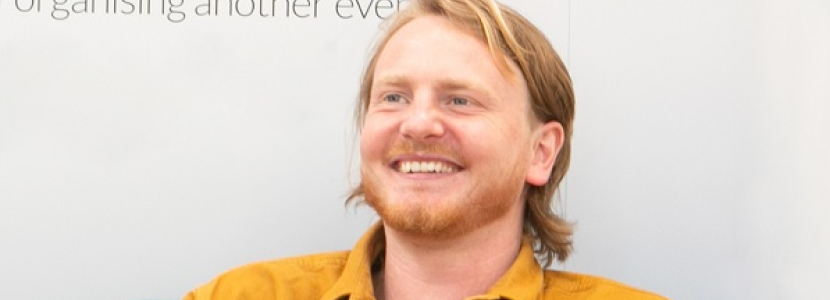
Event planning: how to build meaningful online events
Henry Hall, Head of Business Development at CrowdComms, will present a Knowledge Programme session at IBTM World titled ‘Events and the carbon footprint conundrum’, delving into the world of hybrid events in an interactive session packed with exclusive insight and tangible examples, aimed at informing the choices of event planners. Here, Henry discusses how online events have evolved, how to make online events meaningful, and what events of the future might look like.
How can you build meaningful communities in an online environment?
Technology has enabled humanity to connect for thousands of years. For example, the invention of fire went hand-in-hand with the growth of human civilisation. Creating a space for people to congregate, communicate and share is, in concept, no different today in the digital sphere as it was back then for our hunter-gathering predecessors. The first step is to create the space, the second is to encourage acceptance and adoption, and finally, to increase contribution and participation from members to drive meaning from the environment.
These conceptual foundations are good pillars to structure your methodology when creating an online community. Instead of a rack of ribs to congregate over, your users need quality content, instead of grunting and pointing they need 1:1 video calls and push notifications. We can lead and encourage users' behaviours by adopting technology, and using it to influence activities, whether that be networking, content sharing or content creation. The technology you choose to build your community needs to have the functionality to act as a conduit for communication and participation.
What does a 360-degree event mean?
The lines between work and home life have blurred since the pandemic, as has the notion of a single stand-alone event. Live events are a fantastic time to share with old connections and develop new ones. The 360 event is an event that never switches off, where conversation can happen outside of the initial experience, with regular touch points to incentivise future participation and content-on-demand whilst marketing other opportunities aimed at similar communities. The digital transformation in home and work life we are experiencing is a testament to the change in our behaviours and serves as an excellent example of how our concepts of an event will change.
Some people thrive in remote working and networking situations, while others are less enthusiastic. How can event planners support both types of user?
It's no surprise that this digital revolution we are a part of presents many challenges for us. From digital fatigue and the absence of familiar human connection to a lack of engaging content and poor user experience, many of us feel resistant, challenged and frankly bored of the virtual networking environment. Others see the benefits of accessibility and sustainability in having ten meetings daily in the comfort of a pair of sweatpants. Understanding these benefits and challenges of user groups is essential when developing a remote networking tool.
CrowdComms is focused on finding solutions to these challenges, which involves creative thinking about how we can modify functionality to be more engaging. Smart Sessions, which we launched in 2022, is a prime example of this. We were tired of watching content alone in a virtual plenary room, so we enabled our software to encourage watch parties and spontaneous networking. We are always thinking about what new tools we can develop to increase meaningful connections and how we can advise clients to prepare their communities for future technological developments.
What do you see on the horizon for the future of event technology?
There are lots of exciting tech developments in the pipeline for both live and virtual events. Every week I hear of a new technology designed to improve the event experience. I think biometrics will become more commonplace in the physical environment, as well as trends towards immersive rooms and live digital spaces to connect the different user groups. Then there is the Metaverse, and what a dystopian but truly liberating concept that is! Statistics show that the average 18–24-year-old in the UK spends over 50% of their waking hours on a computer, already participating in a metaverse (with bad graphics) that is the current internet. It's a natural progression to develop a more immersive and interactive experience to drive contribution and participation with the ultimate aim of delivering meaningful online communities.
About Henry’s session at IBTM World:
Henry’s session, ‘Events and the carbon footprint conundrum’, will take place on Wednesday, 30 November 2022 at 16:30 on the Accelerate stage, to find out more, please click here.
CrowdComms provide end-to-end event tech solutions with experts always in your corner. CrowdComms is the official partner for this year's IBTM World app, which attendees can download in advance to organise their diaries, navigate and curate their favourite education sessions, and get the most out of participating.
www.ibtmworld.com
#CultureCreates #IBTMWorld


